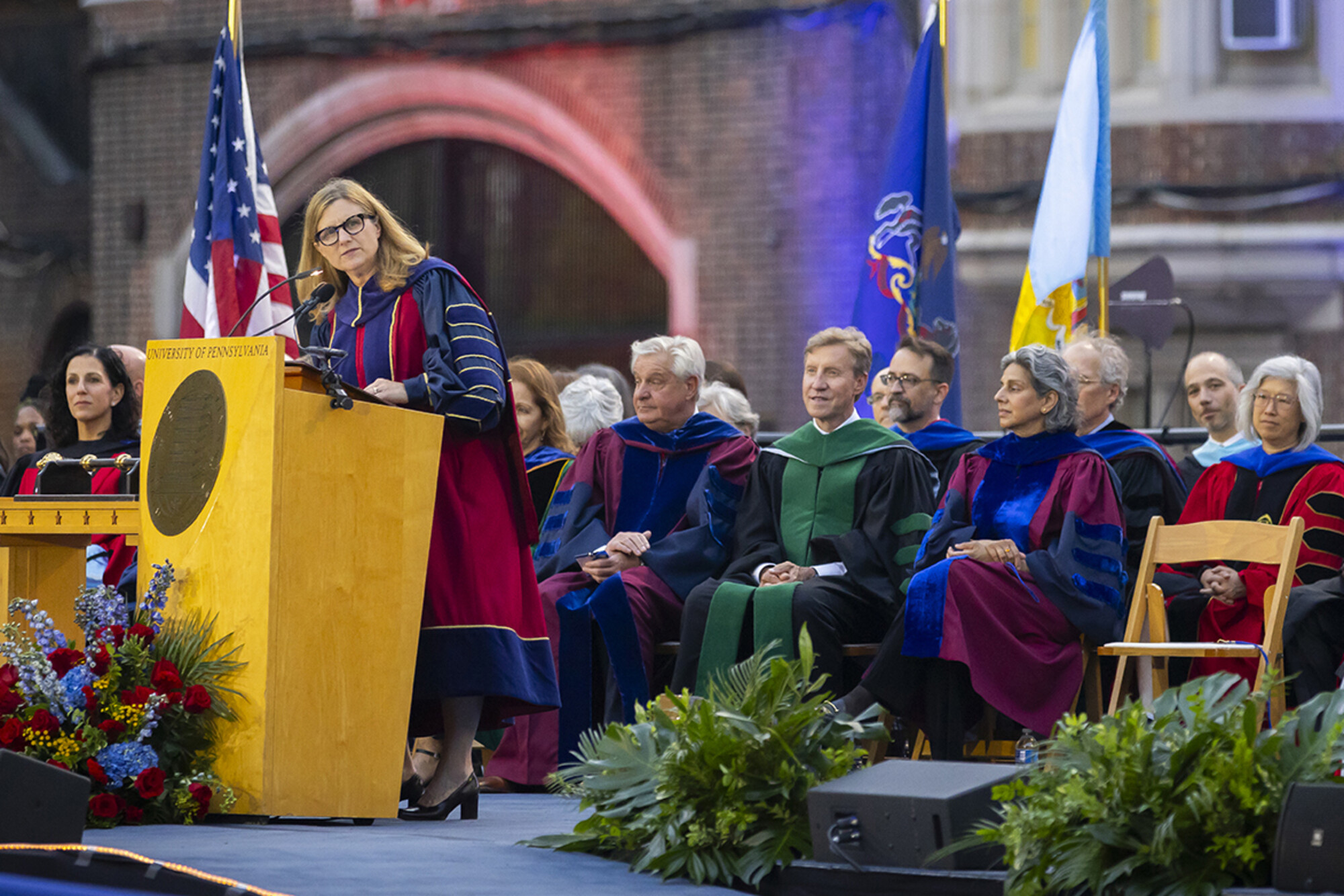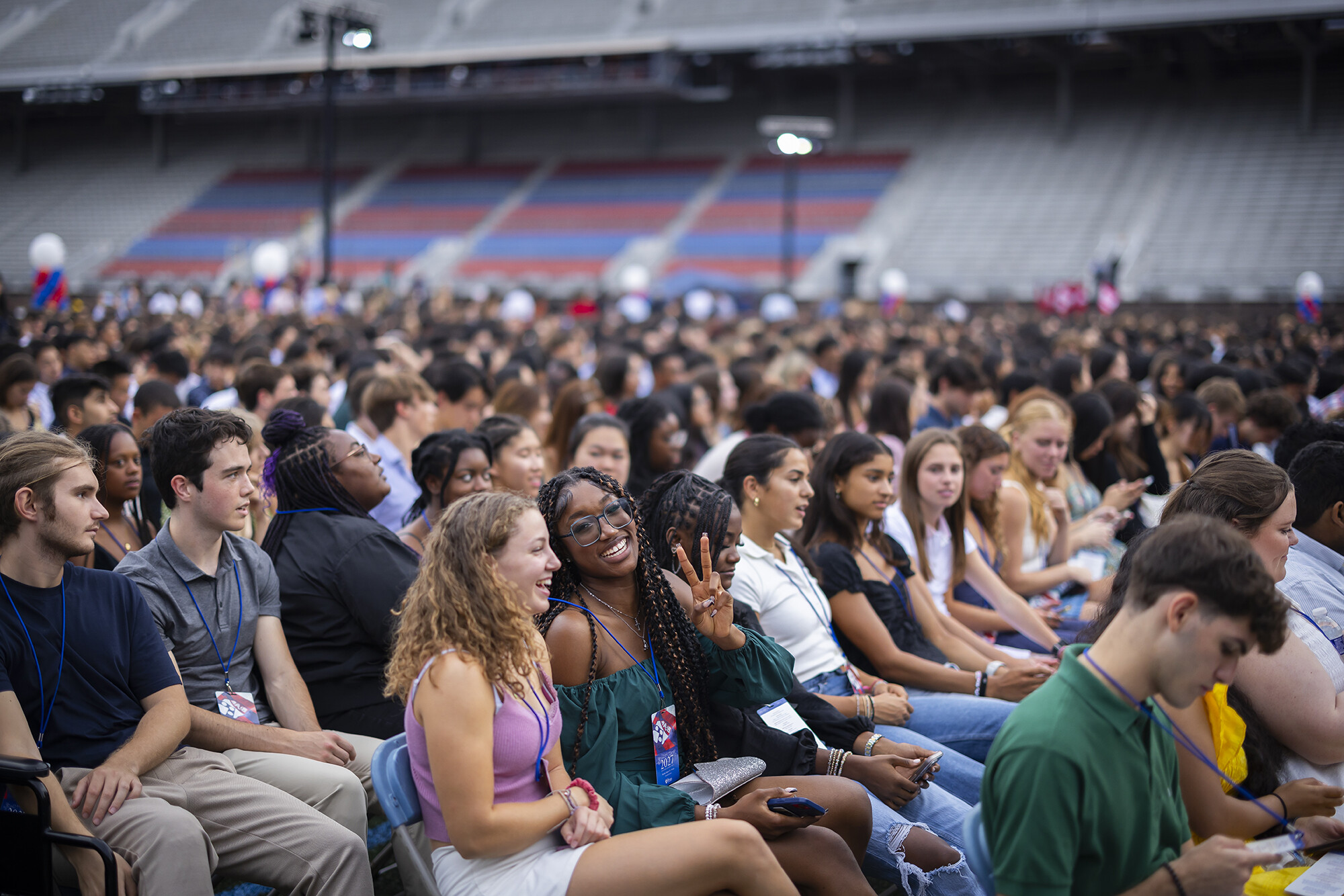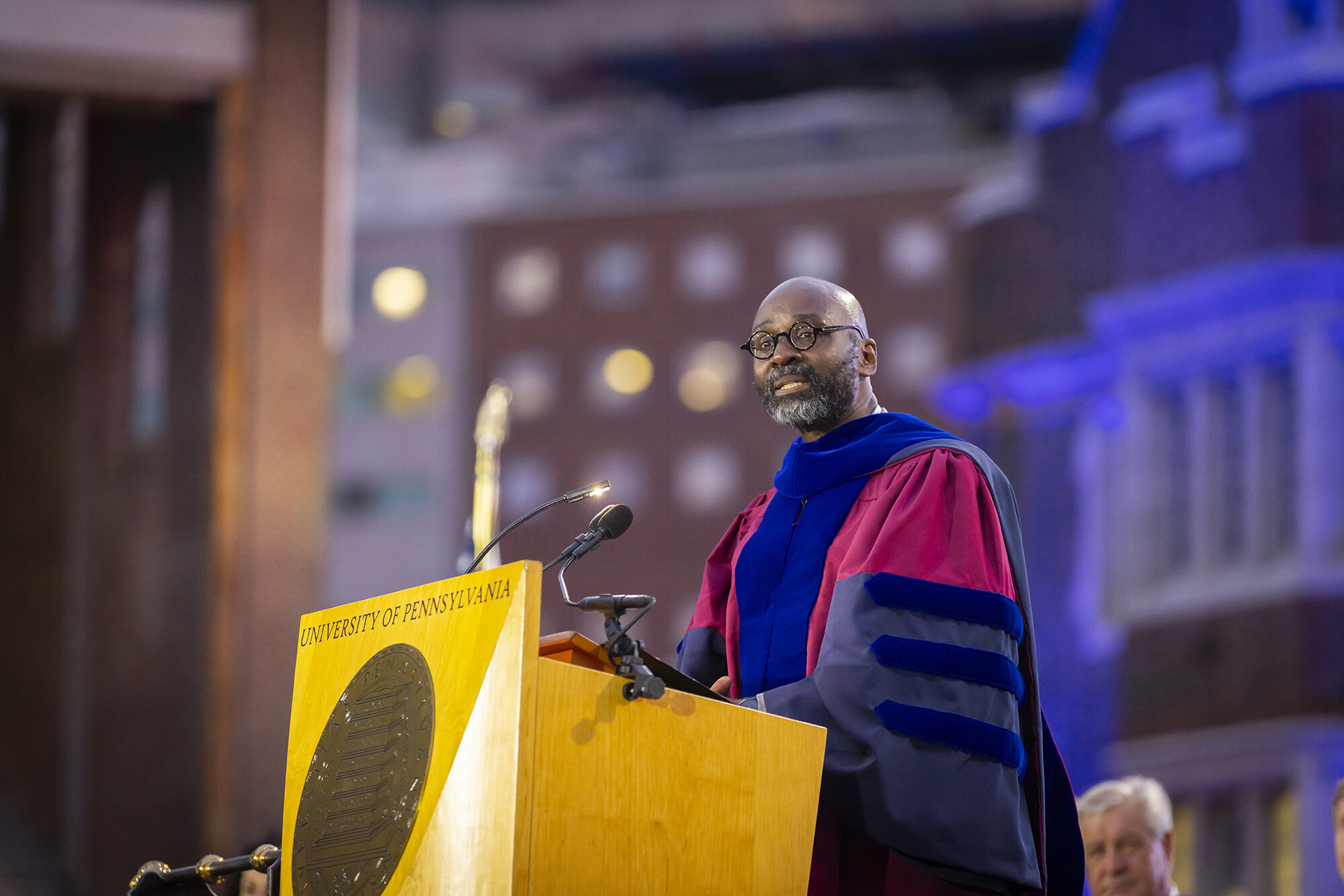
Convocation, a long-running evening celebration at Penn that ushers in the new academic year, doubles as a beginning and end: It carries first-year students from the days of New Student Orientation and summer planning into the first hours of their four years as college students.
But it’s also, as Penn President Liz Magill emphasized in her speech on Monday evening to students, “a call together.”
At the gathering of the Class of 2027—made up of 2,416 people from 96 countries—Magill called on students to participate in an exercise in which the front row was asked to pass a series of colored cards to the back row, saying hello to the person behind them as they did so—“like a relay race,” she said.
Students rushed to pass the cards back, and a raucous applause erupted from a corner row that appeared to finish first. Magill then asked students to recall what color the card was that was passed to them; many, of course, could. When asked to recall the color of the cards being passed next to them, the number of raised hands noticeably lessened.
“That’s because we’re hard-wired to focus on what’s right in front of us. It might be a goal, an obstacle, it might be this totally weird game I just asked you to play,” remarked Magill.
The idea, she stressed, was that people tend to use a “zoom lens”; the opposite, she explained, is a “fisheye lens.”
“That’s the wide view; it sees the periphery, it engages panoramically. So today, you are embarking on what’s among the most important times in your life to cultivate the skills of the broad view—of the fisheye lens, if you will. And I encourage you to spend at least part of your time at Penn with a fisheye lens.”
With humor, Magill noted that many faculty would agree focus is important—in classrooms, labs, stages, fields, and beyond—but that balancing the “zoom” with a broader view and exploring Penn’s vast resources is important. That might mean being open to new friends or insights or, Magill explained, working at the boundary points of knowledge where innovation becomes possible—invoking the insights of Franklin Medal-winner and H. Nedwill Ramsey Professor in Electrical Systems Engineering Nader Engheta.
“[President] Magill’s speech was absolutely awesome,” said first-year Rishabh Wuppalapati, from Chicago, after Convocation.
“A lot of us were solely focused on racing and didn’t even realize that she wanted us to see not just what’s in front of us but what’s also next to us,” he said. “It’s a good metaphor for being aware of our surroundings in this greater community, and not just focusing on the race in life.”
Wuppalapati said he was inspired to learn more about Penn. Already, he added, he’s interested in opportunities with the Center for Undergraduate Research and the student organization Matriculate, which advises high-achieving, limited-income high school students on how to apply to colleges.
The Convocation program also included opening remarks by Whitney Soule, vice provost and dean of admissions, who spoke about a new essay prompt for the Class of 2027 that asked them to write thank-you notes to people who influenced them. Soule spoke in awe of the nearly 60,000 thank-you notes that came from applications and the chain reaction of gratitude sparked by them. Teachers, she explained, wrote to say they’d incorporated the prompt into their own instruction, and admissions staff were often moved by sentiments they’d read.
“This is not just feel-good; this is profound,” proclaimed Soule. “And each of you sitting out there can do this here. So, please notice the positive influence of others, acknowledge it, maybe write it as a note, pass it on. Will it be you whose idea of community and your expression of gratitude influences Penn? I hope so.”
“I really loved [that Soule] acknowledged our essays as impactful to them,” said Olivia Scott, a first-year from Mount Olive, New Jersey. “That was one of the essays I enjoyed writing and was probably my favorite thing—and I love that that’s new for our class.”
Scott thanked her high school coach in her essay, she says.
“Even though I didn’t appreciate all the exercises at the time, she really shaped me to be a better athlete, and I just realized that you have to work hard to get where you want to go.”
In his first Convocation remarks as provost, John L. Jackson Jr. dared students to be different, drawing from his expertise as an anthropologist. The advice: Try something new, meet others with different stories than your own, and embrace the opportunity at Penn to become not just well-educated, but well-rounded.
“The great anthropologist Ruth Benedict once noted that ‘the purpose of anthropology is to make the world safe for human differences.’ Not a trivial goal,” Jackson said. “Embrace others’ differences. And don’t be afraid of the fact that this special experience with us here at Penn will undoubtedly make you different by the time you leave. In ways that are inspiring and foundational and inescapable, it most certainly will.”
For more photos from Convocation, visit Flickr.











